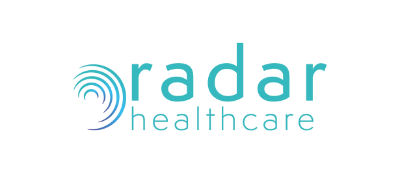ICS Digital Transformation in Focus: The Hewitt Review's 4 Key Recommendations for Success
11 April 2023
Tags:
 The recently published 89-page Hewitt Review, by Hon Patricia Hewitt, includes a series of independent recommendations on how the oversight and governance of integrated care systems (ICSs) can best enable them to succeed.
The recently published 89-page Hewitt Review, by Hon Patricia Hewitt, includes a series of independent recommendations on how the oversight and governance of integrated care systems (ICSs) can best enable them to succeed.
Hon Patricia Hewitt, Secretary of State for Health, head of Norfolk and Waveney NHS integrated care board, and deputy chair of its integrated care partnership, was commissioned to conduct the review in December 2022.
In this blog, we will delve into the key findings and recommendations from the Hewitt Review, highlighting how digital tools and data can help shift priorities toward promoting health, provide a “single version of the truth,” close the skills gap in digital, and empower the public to manage their health.
The four main aims of ICS are to:
- improve outcomes in population health and healthcare
- tackle inequalities in outcomes, experience, and access
- enhance productivity and value for money
- support broader social and economic development
The Hewitt review highlights the importance of collaboration, culture, leadership, and behaviours, in addition to structures, in achieving these aims. So, what exactly does she recommend? Here are some of the report’s standout suggestions:
Moving away from illness to promoting health
Hewitt recommends shifting priorities by increasing the share of total NHS budgets at the ICS level going towards prevention by at least 1% over the next five years. To help with this shift, she recommends leveraging digital and data tools to help enhance data sharing and interoperability between organisations. She believes that creating a minimum data sharing standards framework, with collaboration between NHS England, DHSC, and ICSs, will enable ICSs to connect data “from multiple sources” including GP practices, social care provision, and VCFSEs.
One successful example of this is Dorset ICS, which has established a live-linked dataset, pulling in data from multiple sources to screen their fast-growing over-65 population, including those at high risk of falls, and as a result, significantly reducing the number of emergency hospital admissions.
Using Radar Healthcare’s intuitive software, you can have a visual portfolio of your entire case load, on one screen – from incidents to workforce compliance, you can gain clear oversight of all your health and social care providers – as well as local authorities and voluntary sectors.
Discover our analytics dashboard
Delivering on the promise of systems
Hewitt believes that for the NHS to deliver on its promise of ICS, NHS England should significantly reduce the number of national targets to no more than 10, see the current NHS 2023 priorities here and allow ICSs to set locally co-developed priorities or targets. The digitisation of the health and social care system, together with the rapidly growing use of smart data analytics tools, can help provide a ‘single version of the truth’ essential for aligning all partners, locally and nationally, around the same purpose and goals.
Hewitt emphasises the need for a “two-way flow between systems and national bodies,” with real-time data being collected and automated to drive consistency. Data collection should increasingly focus on outcomes, and data held by NHSE about performance within an ICS should be made available to the ICS and the national government. Hewitt explains that “given the scale of improvement required, the present manual reporting burden placed on providers and partners in ICSs is unacceptable… Continuing automation of data provision, shared between NHS England, DHSC, and No. 10, will itself improve matters.”
Data consistency is at the heart of Radar Healthcare, and we know how important it is to have accurate data that provides you with real-time insight. That’s why our intuitive software integrates with other systems, to provide you with a single picture of your organisation.
Gain clear oversight of your organisation:
The skills gap in digital
A key element of Hewitt’s report focuses on the workforce and how there needs to be a “complementary strategy for the social care workforce as soon as possible,” which is complementary to the NHS workforce plan and the flexibility of health and care staff to move between roles. Not only does the report focus on the lack of alignment between health and social care, but it also highlights the right skills needed at the ICB level, stating that “all ICBs need to work with their partners – including place boards, provider collaboratives, and local government – as well as their own staff, to establish and develop people in the roles that are needed in the ICB, to facilitate the acceleration of and depth of performance improvement and wider transformation across the system.”
Hewitt highlights the shortage of skilled professionals, “including those who are experts at the cultural change that underpins digital transformation,” suggesting that NHSE should develop in-house skilled teams who can be embedded within a provider or system to train frontline staff and grow the local capability.
With access to policy checks and training, Radar Healthcare’s workforce compliance module makes sure that your staff has the tools they need. You can be sure that your teams are up to date and have everything in one place, and even better, get reports at the touch of a button.
Provide your staff with the tools they need:
Discover our workforce compliance module
Good health over the economy
Hewitt suggests “giving systems more flexibility to determine allocations for services and appropriate payment mechanisms within their own boundaries” as well as putting an end to “small in-year funding pots and extensive reporting requirements.” Funding should be largely multi-year and recurrent, and every ICS should ensure that both their ICP’s integrated care strategy and their ICB Joint Forward Plan include a clear articulation of the needs of children and young people within their population.
Unless we transform our model of health and care, as a nation we will not achieve the health and wellbeing we want for all our communities - or have the right care and treatment available when it is needed.
Hewitt’s report recommends that every ICS should ensure that both their ICP’s integrated care strategy and their ICB Joint Forward Plan include a clear articulation of the needs of children and young people within their population and how those needs will be met through collaboration across the system.
The report also recommends empowering the public to manage their health by trialing the proposed approach in a limited format working with the NHS app team and suitable third-party vendors under the oversight of an appropriately recruited citizens’ panel.
Hewitt concludes the report by emphasising the need for close partnerships between many parts of the health and care system, including primary care, community health, mental health, acute hospital trusts, local government, and social care providers. The availability of timely, transparent and high-quality data must be a priority to enable local autonomy.
In conclusion, the Hewitt Review provides a roadmap for the future of ICSs that recognises the growing demand from the public, increased pressures, and opportunities from data and digital advancements. By transforming the model of health and care, we can achieve the health and wellbeing we want for all our communities.
For more information about how Radar Healthcare’s intuitive system can start adding real value to your organisation, get in touch with our expert team here.







